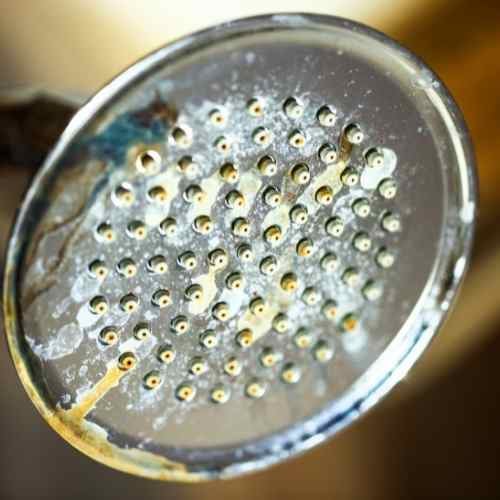It's hard to argue that a shower is one thing that can warm you up on a cold morning or cool you off after a day in the hot sun. But what should you do when your shower head shows wear and tear? Here are some common signs that it might be time to replace your shower head.
Significant Loss Of Water Pressure
Among the most common signs that it might be time to replace your shower head is a significant loss of water pressure. A decrease in water pressure can result from various factors, including mineral buildup in the shower head or a problem with the water line. If you notice a sudden drop in water pressure, it's a good idea to have a plumber look at your shower head to see if it needs a replacement.
Leaks
Another sign that you might need to replace your shower head is leaking. Leaks can occur for various reasons, including worn-out seals or gaskets. If you notice water leaking from your shower head, it's essential to have it repaired or replaced quickly to avoid further damage.
Corrosion
Corrosion is another common problem that can occur with shower heads. Corrosion is common if tap water contains high levels of minerals, such as calcium and magnesium. If you notice corrosion on your shower head, it's a good idea to have it replaced.
Strange Noises
Strange noises from your shower head are another sign that it might be time for a replacement. These noises can result from a buildup of minerals in the shower head, which can cause the shower head to vibrate. If you hear unusual noises from your shower head, it's a good idea to have it checked out by a plumber.

Decreased Water Temperature
If you notice that the water temperature from your shower head is significantly lower than it once was, it might be replacement time for the shower head. But, again, minerals could be to blame if it causes a buildup that restricts the flow of hot water.
Preventative Measures To Preserve Your Shower Head
These days, homeowners can choose from a comprehensive range of shower heads, including standard fixed, handheld, dual shower heads, adjustable shower heads, rain showerheads, and more. Luckily, some simple preventative maintenance and planning can help ensure that your shower head lasts as long as possible.
For homeowners in areas with hard or well water, treating water before it enters your home can help reduce mineral buildup and extend the life of your household faucets and shower heads. Rock salt softeners are one type of water softener used to remove these minerals, and adding a sequestering agent into the water softener can help to minimize staining on surfaces.
If you have a shower head with removable parts, you must take it apart and clean all the pieces periodically. Cleaning or descaling helps remove mineral buildup and keeps your shower head working correctly. Using a simple vinegar and water solution, you can remove the mineral buildup that can cause many of the abovementioned problems.
To descale:
- Remove your shower head and soak it overnight in a mixture of one part white vinegar and two parts water.
- Take a used toothbrush and gently scrub any remaining mineral deposits in the morning.
- Rinse the shower head thoroughly with water before attaching it.
Clearing away any deposits that cause blockages can help ensure that your shower head has a longer lifespan.
Additionally, you must check the connections on your shower head regularly to ensure they're tight. If you notice any broken seals or gaskets, you must have them replaced as soon as possible.
If you take these preventative steps and maintain your shower head regularly, you can help extend its lifespan significantly. However, like everything, these bathroom accessories don't last forever.
What Could Happen If A Showerhead Goes Bad?
Now that we've discussed some signs of a bad showerhead and preventative steps you can take to keep your shower head running at its best let's discuss the potential consequences of not fixing a malfunctioning showerhead.
The first and most obvious outcome of neglecting to replace a bad shower head is that you won't be able to enjoy your showers as much. A loss of water pressure can make it challenging to get the temperature you want, and a decrease in water temperature can make it hard to enjoy a hot shower.
The next potential issue is water waste. Wasting water doesn't help anyone! For example, a shower head with a lower flow rate can take longer to wash and rinse off, which contributes to more water overall. For residences with multiple household members, that wastewater can add billing charges and unnecessary environmental impact.

Additionally, the extra time you spend in the shower leads to higher energy bills. The longer your shower, the more hot water you use, and the more money you'll spend on your energy bill. So, if you want to save resources and money, it might be a good idea to get that old shower head replaced.
Finally, if you don't replace a malfunctioning or broken shower head, you could open yourself up to potential health hazards. A blocked shower head can cause water to back up or cause leaks that can contribute to significant water damage in your bathroom. Plus, if there are issues with the drain and it isn't draining correctly, it can lead to standing water which is never ideal.
Standing water that penetrates non-waterproof surfaces such as drywall or insulation can create an ideal environment for mold and mildew to grow. And we all know how dangerous mold and mildew can be to our health.
Mold and mildew can contribute to severe respiratory problems, so minimizing the chances or severity of these issues helps keep all household members healthier, happier, and breathing more easily.
If you have any concerns about your showerhead or plumbing in your a home, don't wait to contact the professionals at Geiler. We're happy to help you keep your bathroom in top shape!


